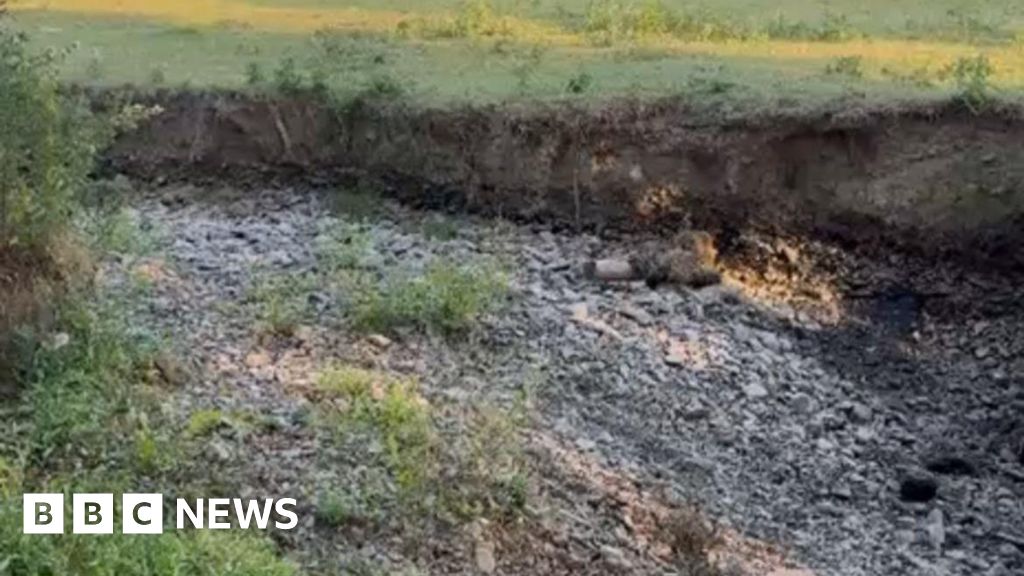Community moves thousands of fish after brook dries out
- BBC News
Residents of a Powys town have moved thousands of fish after concerns were raised about dwindling water levels following a summer of prolonged dry weather.
Dave Lister, from Newtown, said he saw the fish "gasping for air" after noticing the water in Aberhafesp Brook had "completely gone".
He accused Natural Resources Wales (NRW) of failing to help the residents after he reported the incident to the environmental watchdog.
But NRW said moving fish during extreme low flows and high temperatures can "cause more harm than good" if they are added into already stressed river systems.
This summer has seen four heatwaves in parts of Wales.
On Friday north Wales moved into drought status after the driest six-month period since 1976, while the United Kingdom has "almost certainly" had its hottest summer on record, according to the Met Office.
Mr Lister told Radio Wales Breakfast he often visited the brook as it is a good spot for photographing wildlife in the area.
"When I pulled up and got out of the van I saw that the whole brook had completely gone.
"Ive never seen it like that," he said.
After walking towards the river, Mr Lister saw a large puddle of water that he said was "full to the top" with thousands of fish.
Some were already dead so he decided to phone NRW to see if they could provide any assistance.
"The fish were in real bad distress by this time. Legally I dont know if Im allowed to just start taking them out," Mr Lister said.
Mr Lister said he was told he would be contacted by NRW with a response.
"I said call back urgently because if youre not going to do anything I need to start doing something.
"Half an hour had gone and there was no call back from them, so thats when I phoned friends and we started getting in and shovelling them all down to the river."
The group continued to move the fish in the evening and the following morning finding species including salmon, trout and stickleback.
"We carried on finding more and more and still there was no response at all from NRW," he said.
In a statement after the incident, NRW said many fish, including smaller species, did not "survive the stress of being handled and relocated".
But Mr Lister said he believed what the group did was better than "leaving them to die and just walking away".
Ben Cottam is the director of the Canal and River Trust for Wales which looks after navigable canals and waterways.
He said it was a "very, very difficult period" for the aquatic ecosystem.
"We are facing a very, very significant and prolonged period of drought-like conditions," he said.
"That does affect wildlife and where that happens we will seek to do what we can to protect that wildlife."
Mr Cottam said many of Wales canals are fed by the rivers such as the Usk.
"The Usk is at historically low levels and in a drought-like state that means we are having to pay for 100% of the water that is going into that canal to maintain that," he added.
A spokesperson for NRW said teams were working hard to "monitor" and "respond" to environmental pressures across the country.
"We are aware of reports of fish struggling in Aberhafesp and we understand the public concern about the impact on fish populations here and across the region," they said.
According to the watchdog, Wales has received just 555mm of rainfall between February and July, causing extremely low river levels.
"This has led to reduced dissolved oxygen in water, and isolated pools in smaller streams, which are all conditions that can cause fish distress and mortality."
But NRW was keen to stress that moving fish in these conditions can "cause more harm than good".
"Even larger fish, which are more resilient, can struggle if moved into already stressed river systems, potentially competing for resources and putting further strain on existing populations."